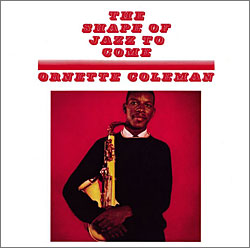Was 2010 a good year for high end audio?
Explain your choice in the comments.
Explain your choice in the comments.
In its three decades the Delphi has undergone many upgrades both technical and aesthetic. Not surprisingly, so has the price. The Mk.II Delphi sold for $1250 in 1986; the Delphi Mk.VI with Turbo power supply and dedicated power cord now sells for $8500, which, in today's market, I think is reasonable for what you get. The review sample came with an Oracle/SME 345 tonearm ($3100) and a Benz-Micro Thalia high-output MC cartridge ($1700), for a total cost of $13,300or $11,600 for just 'table and arm.
Of course, the Latinists among my readers (all three of them) already know that the ancient Romans would have carved this column's title "PUERNATUSEST." (Not that the Romans gave a fig about that particular puer until much later . . . ) All in capital letters, because lower-case (ie, minuscule) letters were not invented until scribes in the Middle Ages wanted to write faster by not having to lift their pens so often between strokes. Spaces between words also came after Roman times.
 The folks at Rhino Records have just released a 180-gram vinyl reissue of The Shape of Jazz to Come, Ornette Coleman’s groundbreaking (and still riveting) album of 1959, mastered at RTI from the original stereo tapes. It sounds in every way better than the original pressing, which itself sounds quite good.
The folks at Rhino Records have just released a 180-gram vinyl reissue of The Shape of Jazz to Come, Ornette Coleman’s groundbreaking (and still riveting) album of 1959, mastered at RTI from the original stereo tapes. It sounds in every way better than the original pressing, which itself sounds quite good.
Everything is clearer, highs are extended, bass is more defined, dynamics are wider. Ornette’s white plastic alto sax has more of that palpable whoosh through the reed and horn. Don Cherry’s pocket trumpet has an airier mouthpiece. Charlie Haden’s bass—you can hear the wood vibrate. And Billy Higgins’ drum set has more sizzle and snap.
Leonard was the consummate jazz photographer, a true artist as well as a chronicler, whose black-and-white pictures—most of them taken between the late 1940s and the early ’60s (though with a remarkable reprise in the late ’80s and ’90s)—captured, even visually defined, the passion of the music, the intimacy between the musicians and the moment, the spirit of the times.
 I've always enjoyed the time I've spent with NHT loudspeakers. The two bookshelf models I've reviewedthe SB-3 (Stereophile, November 2002) and its successor, the Classic Three (November 2006)shared NHT's "house sound": liquid, balanced, and dynamic, with little coloration, and a slightly forward and lively midrange. The newer Classic Three, still in production, sounded more refined, natural, and detailed than the SB-3. I like to see speaker designers whose work improves over time.
I've always enjoyed the time I've spent with NHT loudspeakers. The two bookshelf models I've reviewedthe SB-3 (Stereophile, November 2002) and its successor, the Classic Three (November 2006)shared NHT's "house sound": liquid, balanced, and dynamic, with little coloration, and a slightly forward and lively midrange. The newer Classic Three, still in production, sounded more refined, natural, and detailed than the SB-3. I like to see speaker designers whose work improves over time.
So when NHT approached me about reviewing a new floorstanding model with a small footprint, the Classic Absolute Towertheir first new speaker design of the next decade, they sayI jumped at the chance. Not only had I not reviewed an NHT in a while, but I'm increasingly intrigued withand applaudthe trend of manufacturers to add small-footprint tower speakers to their lines of affordable speakers. As most speakers costing under $1000/pair tend to be bookshelf models, shoppers need to worry about buying good-quality stands of the appropriate height, and about optimizing the speaker positions with respect to the front and side walls.